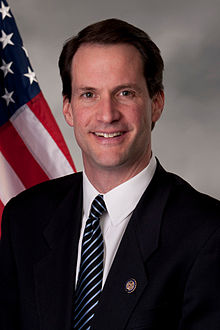Below is a press release I received from Congressman Himes’ office. I normally don’t post political things but I’m interested on your opinion on this:
#WASHINGTON, DC— Congressman Jim Himes (CT-04) is one of the more moderate Members of Congress, according to a new report released by the National Journal recently. The publication’s 2013 Vote Ratings show that Himes voted with the other party on fiscal and economic issues more than any other member of the Connecticut delegation but more often leaned to the left on social issues and matters of foreign policy. In the House of Representatives – currently made up of 200 Democrats and 232 Republicans – Himes is the 130th most liberal or the 302nd most conservative member overall, placing him among more moderate Democrats and slightly left of center among his colleagues in Congress as a whole. Click here to view the full list of rankings.
“I represent a moderate district that appreciates a balanced approach to legislating, and I think my voting record reflects that. I am proud of my record of promoting fiscal responsibility and economic growth, advocating for social progress, and supporting level-headed, pragmatic foreign policy,” said Himes. “Good ideas aren’t liberal or conservative—they are the right choice. I have always been willing to reach across the aisle, and National Journal’s ratings are a testament to my less partisan approach.”
On economic issues, Himes is the most moderate in the Connecticut delegation, rated “more conservative” than 39% of the House when it comes to economic issues. But, on social issues, the study ranked Himes as more liberal than 69% of Congress. National Journal’s assessment on foreign policy issues – which covered topics ranging closing the Guantanamo Bay Prison to reducing defense spending and ending the war in Afghanistan – found Himes’ record to be more liberal than 83% of Congress, the most liberal in the Connecticut delegation.
National Journal’s 2013 Vote Ratings assign House Members separate scores for their roll-call votes on key economic, social, and foreign policy issues during 2013 on both liberal and conservative scales. The scales are presented as percentiles indicating above what percentage of other Members that particular Member ranks on the scale.

